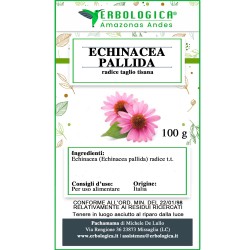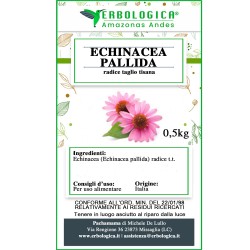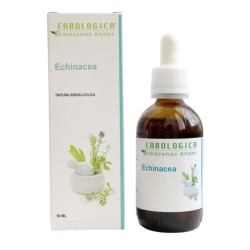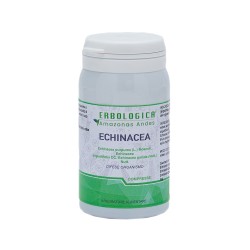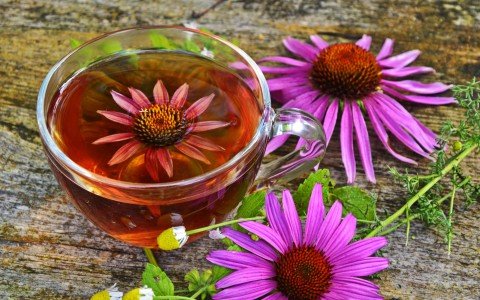
Sei alla ricerca di un modo naturale per potenziare il tuo sistema immunitario o combattere fastidiosi raffreddori e influenza?
Non cercare oltre l'Echinacea, la potente erba usata da secoli nella medicina tradizionale.
Ma cosa è esattamente l'Echinacea e come può beneficiare la tua salute?
L'Echinacea è un genere di fiori originario del Nord America che viene utilizzato da centinaia di anni per le sue proprietà medicinali.
Dalla stimolazione del sistema immunitario alla riduzione dell'infiammazione, dalla lotta alle infezioni alla salute della pelle, l'Echinacea offre una vasta gamma di benefici che possono contribuire a migliorare il benessere generale.
In questo articolo esploreremo i molti utilizzi e benefici dell'Echinacea e perché questa erba dovrebbe essere una costante nella tua farmacia naturale.
Scopriamo i segreti dell'Echinacea e come questa potente erba può aiutare la tua salute!
Introduzione all'Echinacea
L'Echinacea, anche conosciuta come coneflower o fiore di rudbeckia, è una pianta appartenente alla famiglia delle Asteraceae.
È originaria del Nord America, dove i nativi americani la utilizzavano da secoli per le sue proprietà mediche.
In particolare, l'Echinacea era usata per la cura delle ferite, la riduzione del dolore e del gonfiore, e per aumentare l'immunità.
Nel 1800, l'Echinacea divenne popolare tra i medici e gli erboristi americani.
Oggi, l'Echinacea è ampiamente utilizzata in tutto il mondo come rimedio naturale per una vasta gamma di problemi di salute.
Storia dell'Echinacea
L'Echinacea è stata usata per secoli dai nativi americani come rimedio per la cura delle ferite, il mal di gola, il dolore e la febbre.
I colonizzatori europei iniziarono a usare l'Echinacea come rimedio nel 1800, ma la sua popolarità iniziò a diminuire verso la fine del secolo a causa della mancanza di prove scientifiche che ne dimostrassero l'efficacia.
Tuttavia, negli ultimi decenni, l'Echinacea è tornata in auge grazie ai suoi numerosi benefici per la salute.
Tipi di Echinacea e i loro benefici
Esistono nove specie di Echinacea, ma solo tre di esse sono utilizzate a scopo terapeutico: Echinacea angustifolia, Echinacea purpurea ed Echinacea pallida.
Ognuna di queste specie ha proprietà uniche, ma le tre hanno dimostrato di essere efficaci per stimolare il sistema immunitario e combattere l'infiammazione.
L'Echinacea angustifolia, ad esempio, contiene alte quantità di alchilamidi, sostanze che stimolano il sistema immunitario.
L'Echinacea purpurea, invece, contiene polisaccaridi, sostanze che aiutano a ridurre l'infiammazione.
L'Echinacea pallida è ricca di flavonoidi, sostanze che aiutano a proteggere il corpo dai danni dei radicali liberi.
Valore nutrizionale dell'Echinacea
L'Echinacea è una fonte ricca di nutrienti essenziali per la salute, tra cui vitamina C, vitamina E, ferro, manganese e zinco.
Questi nutrienti aiutano a stimolare il sistema immunitario, a ridurre l'infiammazione e a proteggere il corpo dai danni dei radicali liberi.
Inoltre, l'Echinacea contiene alchilamidi, sostanze che stimolano la produzione di globuli bianchi e aumentano l'attività degli anticorpi.
Benefici per la salute dell'Echinacea
L'Echinacea offre una vasta gamma di benefici per la salute, tra cui:
Stimolazione del sistema immunitario
L'Echinacea è stata dimostrata essere efficace nella stimolazione del sistema immunitario.
In particolare, l'Echinacea è in grado di aumentare la produzione di globuli bianchi e la produzione di anticorpi.
Questo rende l'Echinacea un rimedio utile per prevenire e combattere le infezioni.
Riduzione dell'infiammazione
L'infiammazione è una risposta naturale del corpo a danni o infezioni.
Tuttavia, l'infiammazione cronica può causare danni ai tessuti e aumentare il rischio di malattie croniche come il diabete, le malattie cardiache e sistema inmunitario
L'Echinacea è stata dimostrata essere efficace nella riduzione dell'infiammazione, grazie alla presenza di polisaccaridi e altri composti attivi.
Miglioramento della salute della pelle
L'Echinacea può aiutare a migliorare la salute della pelle, grazie alla presenza di antiossidanti e composti attivi che riducono l'infiammazione e proteggono la pelle dai danni dei radicali liberi.
L'Echinacea può essere utilizzata per trattare condizioni della pelle come l'acne, l'eczema e la psoriasi.
Echinacea e il suo ruolo nella prevenzione e nel trattamento di raffreddore, influenza e altre infezioni respiratorie
L'Echinacea è stata tradizionalmente utilizzata per il trattamento di raffreddori, influenza e altre infezioni respiratorie.
Tuttavia, la ricerca sull'efficacia dell'Echinacea per il trattamento di queste condizioni è stata contrastante.
Alcuni studi hanno suggerito che l'Echinacea può essere utile per ridurre la durata e la gravità dei sintomi del raffreddore e dell'influenza, mentre altri studi non hanno trovato alcun beneficio.
Echinacea nella medicina alternativa e il suo potenziale nel trattamento di altre condizioni di salute
L'Echinacea è stata utilizzata nella medicina alternativa per il trattamento di una vasta gamma di condizioni di salute, tra cui l'herpes genitale, le infezioni del tratto urinario e le infezioni della pelle.
Tuttavia, la maggior parte di queste affermazioni non sono state supportate da prove scientifiche.
Alcuni studi hanno suggerito che l'Echinacea può essere utile nel trattamento della bronchite cronica e dell'asma, ma sono necessari ulteriori studi per confermare questi risultati.
Come usare l'Echinacea: integratori, tè e altre forme
L'Echinacea è disponibile in diverse forme, tra cui integratori, tè e tinture.
Gli integratori di Echinacea sono disponibili in capsule, compresse e liquidi e possono essere assunti per via orale o applicati sulla pelle.
Il tè di Echinacea può essere preparato utilizzando le foglie e i fiori della pianta e può essere bevuto caldo o freddo.
La tintura di Echinacea è un estratto alcolico della pianta e può essere assunta per via orale o applicata sulla pelle.
Rischi e effetti collaterali dell'Echinacea
L'Echinacea è considerata sicura per la maggior parte delle persone, ma può causare effetti collaterali in alcune persone.
Gli effetti collaterali più comuni dell'Echinacea includono mal di testa, nausea, vomito e diarrea.
Inoltre, l'Echinacea può interagire con alcuni farmaci, come quelli utilizzati per ridurre l'infiammazione, i farmaci anticoagulanti e i farmaci immunosoppressori.
Prima di utilizzare l'Echinacea, è importante consultare il proprio medico.
Conclusioni - Il potenziale dell'Echinacea e la necessità di ulteriori ricerche
L'Echinacea offre una vasta gamma di benefici per la salute, tra cui la stimolazione del sistema immunitario, la riduzione dell'infiammazione e il miglioramento della salute della pelle.
Tuttavia, sono necessarie ulteriori ricerche per comprendere appieno il potenziale dell'Echinacea e per identificare i suoi possibili effetti collaterali.
Se stai considerando l'uso di Echinacea, è importante consultare il tuo medico per determinare se questa erba è adatta alle tue esigenze di salute.




